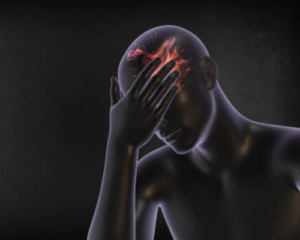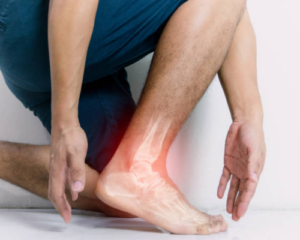Chronic pain doesn’t just affect your body. Over time, it can take a toll on your mood, your energy, your relationships, and your mental health. Yet many people feel uncomfortable talking about the emotional impact of long-term pain, especially when they’ve already struggled to be taken seriously.
The truth is that the link between pain and mental health is well-documented and very real. Understanding that connection is one of the first steps toward healing. In this article, we’ll explore how chronic pain and mental health interact, why it’s normal to feel emotionally affected by pain, and how getting the right kind of help can make a lasting difference.
Pain and Mood: The Two-Way Connection
Pain and mental health are deeply connected. When pain persists for weeks, months, or even years, it creates constant stress on the body and the mind. It can change how you think, how you sleep, and how you relate to the world around you.
At the same time, emotional distress such as depression or anxiety can worsen the perception of pain. This creates a cycle where physical and mental symptoms feed off each other, making both harder to manage.
This isn’t weakness. It’s biology. Pain signals and mood regulation share many of the same pathways in the brain. When one is disrupted, the other often is too.
Common Emotional Effects of Chronic Pain
If you’ve been living with pain for a long time, you may have experienced some of the following:
- Low mood or frequent sadness
- Irritability or short temper
- Trouble concentrating
- Sleep problems
- Increased anxiety or fear about activity
- Withdrawal from friends, family, or favorite routines
- Loss of motivation or sense of purpose
None of these feelings are signs that you’re imagining your pain. They are normal reactions to a very real and ongoing challenge.
Why It Feels So Hard to Talk About
Many people with chronic pain hesitate to bring up emotional struggles. Some worry they’ll be dismissed or told it’s “all in their head.” Others may have had experiences where doctors focused only on the physical problem and ignored everything else.
But at high-quality pain management clinics, your full experience matters. Providers should be trained to recognize the mental and emotional effects of pain, and to support you in managing them just as seriously as the physical side.
Talking openly about how pain is affecting your life is not complaining. It’s essential information that helps guide the best possible care plan.
How Pain Management Clinics Can Support Mental Wellness
While pain clinics are not a substitute for mental health therapy, they play a vital role in addressing the emotional impact of pain. A good clinic will offer:
- Time to listen to your story, without rushing
- Personalized plans that take your stress levels and life circumstances into account
- Coordination with physical therapy or counseling if needed
- Procedures and treatments designed to reduce both pain and the emotional distress it causes
- Education to help you understand your condition and feel more in control
At Alleviate Pain, for example, we take a patient-centered approach. That means your thoughts, concerns, and emotional health are part of the conversation from day one.
You Are Not Alone
One of the hardest parts of chronic pain is that it can feel incredibly isolating. It may be invisible to others, and you might feel like people have stopped asking how you’re doing. This can lead to feelings of frustration, resentment, or even guilt.
But you are not alone. Millions of people live with ongoing pain, and more and more clinics are recognizing that healing must include both body and mind. There are providers out there who take you seriously, listen without judgment, and work with you to rebuild confidence and quality of life.
What You Can Do Right Now
If you’re feeling overwhelmed by the emotional toll of chronic pain, here are a few steps you can take today:
- Talk to your pain provider honestly about how you’re feeling
- Reach out to a mental health professional who understands chronic conditions
- Stay connected with at least one person you trust
- Keep a journal to track patterns in your pain and your mood
- Try small, gentle forms of activity that help shift focus and reduce isolation
There is no one-size-fits-all solution, but progress starts with honest conversations and a team that supports your full experience.
Final Thoughts
Living with chronic pain is hard enough. Carrying the emotional burden in silence makes it even harder. You deserve care that sees and supports your whole self, not just your symptoms.
At Alleviate Pain, we believe that talking about mental health is part of high-quality pain care. If you’re ready to explore new options for relief and support, our team is here to help.
Learn more at alleviatepain.com or find us on Google to read reviews and request a consultation.





















